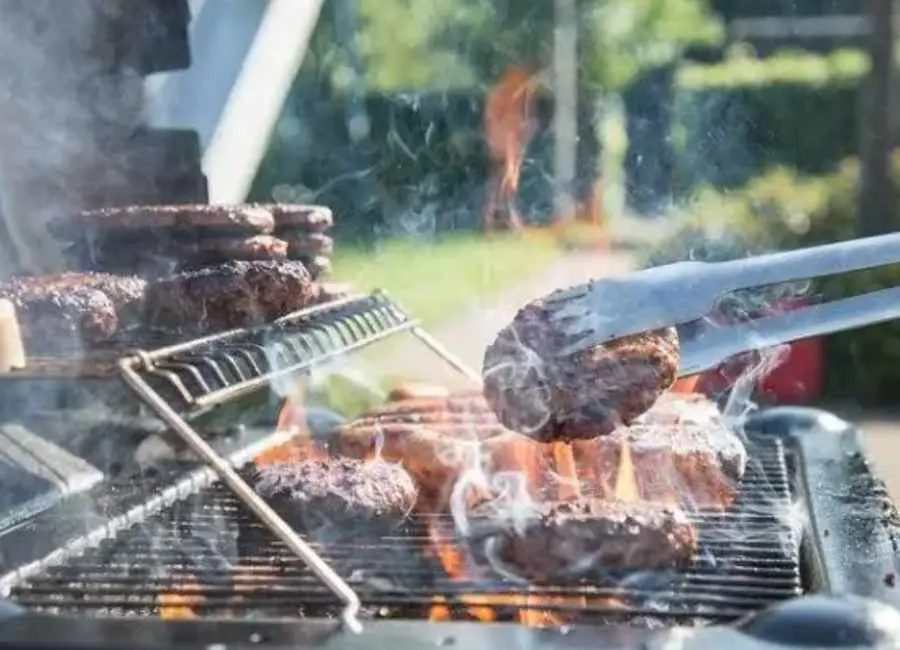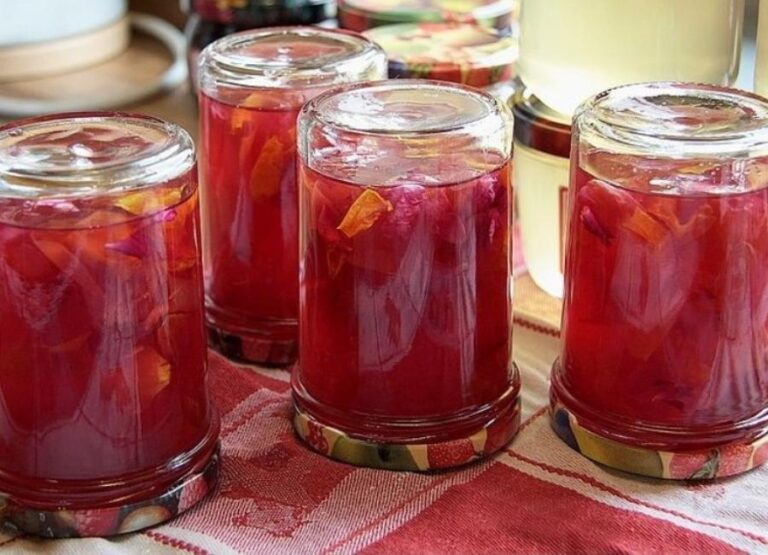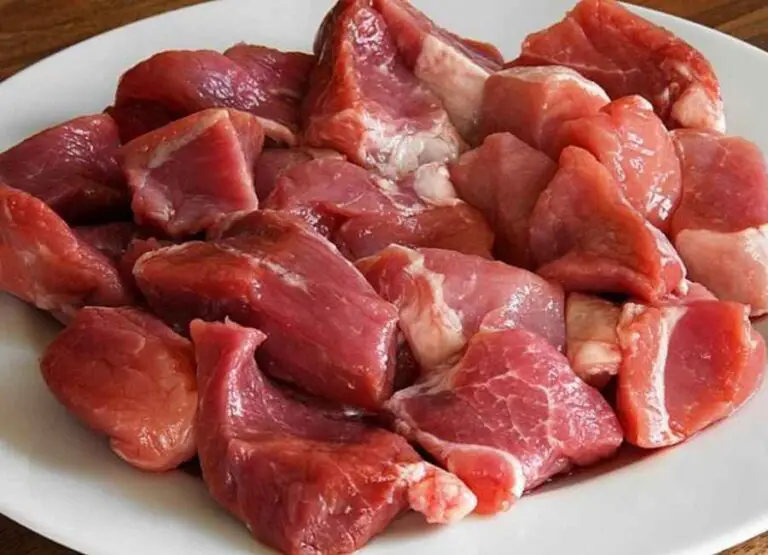10 Tips On How To Cook Meat To Avoid Carcinogens
Since carcinogens concern is on the rise, meat lovers who love grilling always ask how to cook meat to avoid carcinogens.
In this article, we will discuss how to cook meat to avoid carcinogens, but a simple takeaway is that when you cook meat at lower temperatures, carcinogens are not formed as opposed to when you cook at higher temperatures.
Cooking meat at high temperatures can create dangerous carcinogens.
This is because high heat converts the amino acid, hemoglobin, to nitrosamines. These are known, cancer-causing agents.
Eating cooked food with nitrosamines can lead to stomach and bowel cancer in humans.
Some of the best ways to avoid these carcinogens include cooking meat at lower temperatures over a longer time or cooking it in a moist environment like in a crock pot or steamer.
Before we continue, let’s make sure we are on the same page by defining carcinogens.
What are carcinogens
A carcinogen is a substance that can cause cancer in humans. Natural carcinogens, such as aflatoxin, which is generated by a fungus and occasionally found on stored grains, or man-made carcinogens, such as asbestos or cigarette smoke, can cause cancer. Carcinogens cause genetic alterations by interacting with a cell’s DNA.
How To Cook Meat To Avoid Carcinogens
Cooking meat at high temperatures creates a group of compounds called heterocyclic amines (HCAs) and polycyclic aromatic hydrocarbons (PAHs).
These carcinogens have been found to cause cancer, mainly in people who eat a lot of grilled or charred meat on a regular basis.
In order to avoid these harmful compounds, it is best to cook meat at lower temperatures, like simmering or pan-frying.
One thing that people often do, avoids the formation of HCAs and PAHs by cooking their meatless.
However, this is not recommended because it can lead to contracting other food-borne illnesses and bacteria such as salmonella and E. coli.
Here are some common ways to avoid carcinogens when cooking meat:
Reduce heat or cooking temperatures
Over 80% of carcinogens produced during cooking or grilling are caused by high temperatures or heat.
Therefore, the production of HAAs is slowed by lowering the heat or cooking at temperatures below 300 °F.
Grilling or frying at low heat may not provide the pleasant brown char that many people like, but it’s worth it if it helps you live cancer-free.
Find out if grilling with charcoal is safe for you or not safe.
Wrapping meat with foil reduces carcinogens formation during cooking
The two major carcinogens formed in meat during cooking are HCAs and PAHs, they are basically formed because of direct heat.
Wrapping with foil helps reduce the intensity of direct heat on the meat
Because many carcinogens are created when fat drips down and flames flare up, you may coat your grill with foil and punch small holes for the drippings to fall through.
This keeps your meat from coming into close touch with a hot surface.
Choose lean meat rather than dark poultry
Choose lean meat and light poultry over dark. To minimize drippings, remove the skin and cut the fat.
At extremely high temperatures and for extended periods of time, HCAs and PAHs are most likely to develop.
Because leaner cuts, such as flank steak, cook faster and aren’t exposed to direct heat for as long, they can help minimize carcinogens.
If you’re using a fattier cut, don’t cook it until it’s totally charred or done to perfection.
Instead, remove it off the grill before it reaches that point.
You may also cut the meat into smaller pieces to speed up the cooking process.
Avoid grilling nitrate-containing processed meats like sausages and hot dogs, which are precursors to carcinogenic chemicals.
Consider marinating meat before cooking
Before you prepare the meat, marinate it.
Certain marinades, particularly those containing antioxidants, herbs and spices, fruit and vegetable extracts, garlic, grape seed extract, wine, and other delectable components, prevent the development of HAAs.
What you lose in charring, you might make up for in how you handle the meat’s surface.
A number of studies have discovered that marinating meat before grilling reduces its carcinogenicity significantly.
For instance, marinating chicken in a mixture of cider vinegar, mustard, lemon juice, salt, and even red wine decreased HCAs in grilled chicken considerably.
Continues flipping of meat during cooking to reduce carcinogens
According to studies, constantly turning or flipping your meat on the grill reduces the development of carcinogens.
The surface of the meat moves about when you turn it, so it doesn’t get as charred or burnt, which helps to minimize HCAs and PAHs.
Remember, if you don’t flip your meat continuously during grilling, you are more likely to produce a lump of charred meat.
Reduce the meat cooking time
Reduce the cooking time, since well-done meat contains more harmful chemicals that are stored in our fat cells and subsequently acted on by enzymes in our systems to produce carcinogens.
Also, even if just for a short period, avoid cooking over an open flame since the smoke from drippings accumulates PAHs on the meat.
Find out if grilling is even good for your health before trying it out.
Add garlic and onion to meat before cooking
HCAs were shown to be significantly reduced when garlic and onion were added to meat before grilling, according to studies.
It’s ideal if you combine garlic and onion since they can target and decrease distinct HCAs.
Another study discovered that adding freshly chopped onion to a beef patty cooked at 445 °F for 8 minutes on each side significantly reduced HCAs.
The idea is that this Allium pair should be added to your meats prior to grilling, regardless of the form (fresh, powdered, granulated).
Pre-steam meat before grilling
To prevent fluids from dripping onto the flame, steam meat for two to five minutes or microwave for 60 to 90 seconds right before grilling.
PAHs in beef and poultry can be partially removed if properly done to reduce the fat present.
Always clean your grill before cooking
After each usage, clean the grill and refill the charcoal. Carcinogens can form if leftover meat and fat drippings continue to simmer.
Make sure all of the grates are clean before using your grill, and if they aren’t, scrub them with a brush until no debris is left.
When the heat is turned up, any residual charred pieces on the grates are likely to fall down, starting a large blaze.
PAHs develop on the surface of meats when they come into close contact with heat.
Cleaning your grill carefully before and after use is a simple method to decrease PAHs.
Avoid flame flare-ups during cooking or grilling
Flare-ups should be avoided. Flare-ups, which occur when a fire erupts around your meat, substantially enhance the likelihood of HCA production.
Portion sizes should be kept small. Smaller pieces imply less time in the oven and a lower risk of HCA development.
Find out how much smoke meat is safe for you to eat.
Wrapping up
Meat is delicious, healthy food that many people love to eat. Not only is it high in protein, but also in B vitamins and other nutrients.
The only problem with meat is that it contains cancer-causing chemicals called heterocyclic amines (HCAs) and polycyclic aromatic hydrocarbons (PAHs).
Cooking at low temperatures and avoiding charring the meat will help reduce the amount of HCAs and PAHs.
However, there are ways to prepare your favorite cuts of meat that can help you avoid this risk.


![How to Thaw Frozen Beef Quickly [Step by Step Process]](https://foodcreeks.com/wp-content/uploads/2024/03/IMG_COM_20240303_1534_26_4393.jpg)

![How To Tell If Smoked Meat Is Bad [10 Signs]](https://foodcreeks.com/wp-content/uploads/2023/02/How-To-Tell-If-Smoked-Meat-Is-Bad-768x555.jpg)
![How to Freeze Cooked Sausage [Step by Step Guide]](https://foodcreeks.com/wp-content/uploads/2023/05/Freeze-Cooked-Sausage-768x555.jpg)
![Is Lunch Meat Processed Food [Answered]](https://foodcreeks.com/wp-content/uploads/2023/02/Is-Lunch-Meat-Processed-Food-768x555.jpg)
